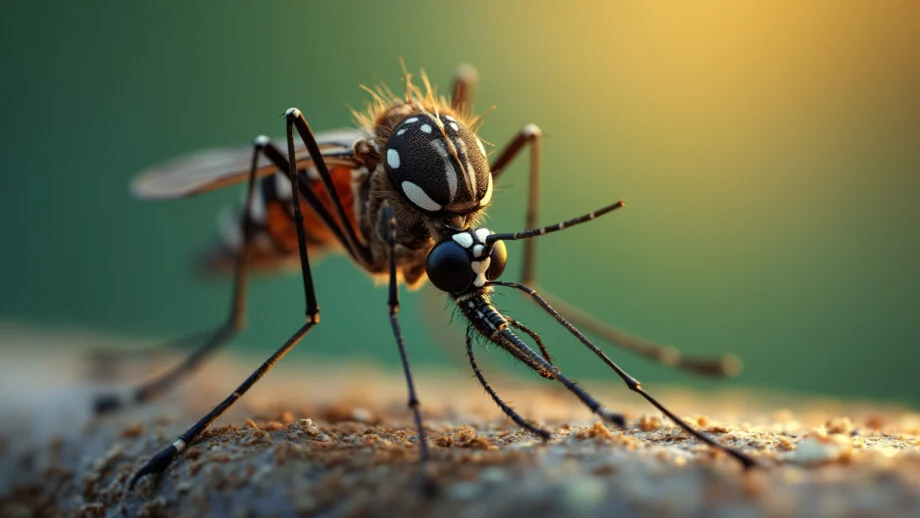
Dubai is growing and equipping itself to keep its citizens and expat population safe and healthy. And it’s taking a high-tech approach to move towards a pest-free city. Recently, it installed 237 smart traps for mosquito control, which are eco-friendly, solar-powered, and 24*7 monitoring.
Traditional methods of controlling mosquito infestation are no longer enough. The reason is clear- increasing population in urban centers and climate adaptability of pests and insects. Let’s look into the smart technology gaining popularity in mosquito control in Dubai and enabling pest control companies to deliver swift, efficient services.
Sterile Insect Technique (SIT)
The innovative mosquito control method relies on fundamental biological processes and has proven quite effective as an eco-friendly method in stemming mosquito populations. Here, sterile male mosquitoes are released into the wild, and then, over time, they mate with female mosquitoes, which are the actual disease carriers. As these mosquitoes are sterile, they plug the productive chain, significantly reducing the mosquito population.
Advanced precision-targeting helps to contain the spread in dense urban sprawls. The SIT has proven results in containing over pests such as screwworm and fruit flies without genetic modification or introducing non-native species.
Use of modern smart traps to control mosquitoes
Modern mosquito traps are designed to meet present needs and are smart devices that are highly effective and promote sustainable options in mosquito control.
Solar powered traps
We discussed this initially: how Dubai has installed solar-powered smart traps. These are ideal choices for sunny Dubai. The device uses UV light and heat to attract mosquitoes. It is solar-powered and functions without electricity. It is ideal for outdoors, such as gardens, sitting areas, and semi-urban zones. It automatically switches on as darkness falls and mosquito activity increases.
CO₂ based mosquito traps
Yes, you got it right. It uses the same CO₂ humans and other animals breathe out to kill mosquitoes. The device uses plumes of CO₂, which mosquitoes read as human breath and get pulled into. The vacuum or adhesive does the rest. The traps come in two variants-
1) Propane traps where the chemical burns to produce CO₂ and may also use Octenol to attract pests. The propane tank needs to be refilled every 2-3 weeks. As the technology improves and adoption increases, the cost should also decrease.
2) Non-propane traps trap mosquitoes using CO2, an attractant, heat, and light.
Smart traps IoT
We have heard about IoT integration in industrial spaces and smart homes. In an extension of this, IoT is highly beneficial in mosquito trap devices, which are gaining popularity worldwide. Futuristic, embedded with sensors and real-time data collection and monitoring capabilities, they quickly transmit mosquito infestation or hot-spot information to a centralized system. These insights help responding teams act swiftly and precisely on identified areas. It’s a novel approach to mosquito control.
Application of high-tech drones for mosquito control
Drones have long been used in agriculture to spray pesticides over large swathes of land, fight water pollutants and overgrowth, and sow seeds. The remarkable capability of drones to provide access in difficult areas or large treatment zones makes it an ideal technological tool to get rid of mosquitoes. They are used in mosquito control and wipe out mosquito breeding grounds.
UV Cameras to Get Rid of Mosquitoes
UV camera-mounted drones have high resolution and can detect larvae in stagnant water zones aerially. It’s a less time-consuming, non-invasive technique than traditional ground inspections.
Mapping and surveillance
Once areas and mosquito hot spots are mapped well, mosquito elimination becomes easier and more scientific. Drones are excellent for generating aerial maps utilizing high-definition imaging and thermal sensors, helping professionals identify breeding grounds across large areas and complex infrastructures. Mosquito control becomes an optimized and efficient exercise.
In the future, AI algorithms can be integrated with systems like GIS and GPS for a broader mosquito control and management program in malaria-endemic areas. It’s cost-effective, accurate, and delivers success in targeted interventions.
Precision Spray to Control Mosquitoes
As discussed earlier, drones are highly effective carriers. They are being used to spray larvicides and adulticides as misting systems, which are highly effective in controlling mosquitoes in high-density areas. When used in addition to other mosquito control strategies, these techniques are highly effective in malaria control efforts.
Biological methods of mosquito control
As citizens worldwide switch to sustainable products and embrace sustainable living, they root for eco-conscious mosquito control methods. This method is gaining popularity in Dubai, where sustainability is a key aspect of modern development.
Let’s look briefly into some of these.
Traditional Biological Mosquito Control
When released into water bodies, natural predators like mosquito-eating fishes arrest the growth of larvae and mosquitoes. Bacillus thuringiensis israelensis (Bti) is another known bacteria with similar properties. It’s a fantastic way nature provides us with a targeted option for mosquito control and elimination without disturbing other species.
Planting natural mosquito repellents
Since it’s an old scientific knowledge passed on through generations that plants like citronella, marigold, and lavender are natural mosquito repellents, they can be used in landscaping for aesthetic purposes and as a natural barrier for buzzing irritants.
Advanced mosquito control options
Apart from the methods we saw above, there are innovative gears and daily life equipment that experts and pest control professionals are recommending for localized mosquito control.
Mosquito Repelling Smart Fans
Have you heard of the fact that mosquitoes have a hard time braving high-speed air? Over time, mosquitoes have become resistant to traditional fans and can sting and bite even in flight. The smart fans create airflows that are a challenge for mosquitoes to navigate. Some also come with natural repellents sprayed as mist, offering a non-chemical, safer option for mosquito control.
Ultrasonic Repellents
As the name suggests, these devices emit high-frequency sounds that are intolerable for mosquitoes as far as the devices claim. But there’s one caveat. We have found it’s not a highly effective mosquito control method, and there’s a difference of opinion on the results.
Benefits of using smart technologies to get rid of mosquitoes
Studies suggest that due to climate change and significant variations in weather conditions, mosquitoes have developed resistance against insecticides. In a way, they have become “smarter” than before. They can now evade pesticides and are learning to breed in more hostile conditions. We must level up our offense against them- smarter tech for smart enemies.
Early detection of mosquito infestation
Before eliminating pests, including mosquitoes, it is essential to detect their presence. The sooner it is discovered, the better it is. Recent advances in GPS, thermal imaging, and pest management have made it possible to restrict mosquito infestation before it turns into a full-blown problem. With real-time tracking, hot-spot identification, and precision-based treatment, there are time and resource savings.
Reduction is pesticide usage for mosquito control
Most of the latest tech uses non-intrusive, eco-friendly, sustainable devices and methods for mosquito control, decreasing reliance on chemical methods. Chemical use or use of pesticide for getting rid of mosquitoes cannot be completely eliminated in cases where the degree of infestation is large. Still, the use of smart technology is changing the pest management landscape
Proven efficiency
Except in a few cases, such as using ultra-sonic repellents, most methods have proven benefits in mosquito control. As pest management advances continue, we expect the prices to come down in the future, making technology-based mosquito control technologies and devices available to a large section of users.
Conclusion
Smart mosquito control is not a thing of the future- it’s here, and cities like Dubai are leveraging it to provide safer, sustainable living for its citizens. We are in an era where there’s more push to align these pest control techniques with global sustainability aims than before.
Whether you’re a homeowner, business, or government agency involved in mosquito control, these smart technologies are opening up new pathways to pest management.
If you’re looking for a trusted pest control company offering advanced mosquito control services in Dubai, choose a service provider that incorporates newer ways to combat the mosquito problem with guaranteed results.
Stay in touch to get more updates & news on Buzz Feed!






